List of Cabinet Ministers | General Test Preparation for CUET UG - CUET Commerce PDF Download
| Table of contents |

|
| Introduction |

|
| Regulation |

|
| List of Cabinet Ministers of India 2025 with Portfolios |

|
| Conclusion |

|
Introduction
The Union Council of Ministers is the heart of the executive branch of the Indian government. It plays a vital role in shaping the policies and decisions that govern the nation. Led by the Prime Minister, the Council consists of three categories of ministers: Cabinet Ministers, Ministers of State (Independent Charge), and Ministers of State. Together, they manage various portfolios ranging from defense and finance to education and health, ensuring that the government functions efficiently and effectively. The Cabinet, particularly, holds the responsibility for crucial national decisions and policy-making, impacting both domestic and international affairs.
Regulation
Pursuant to Article 75(3), the Council of Ministers is collectively responsible to the lower house of the Indian parliament, the Lok Sabha (House of the People). If the Lok Sabha loses confidence, the council of ministers shall resign to facilitate the formation of a new council.
A minister can take any decision without being considered by the council of ministers per Article 78(c). If needed, all union cabinet members shall submit in writing to the President to propose a proclamation of emergency by the president under Article 352.
According to the Constitution of India, the total number of ministers in the Council of Ministers must not exceed 15% of the total number of members of the Lok Sabha. Ministers must be members of parliament. Any minister who is not a member of either of the houses of the parliament for six consecutive months is automatically stripped of his or her ministerial post.
List of Cabinet Ministers of India 2025 with Portfolios
Prime Minister
- Shri Narendra Modi
- Portfolios:
- Minister of Personnel, Public Grievances and Pensions
- Department of Atomic Energy
- Department of Space
- All important policy issues and all other portfolios not allocated to any Minister
- Portfolios:
The list of Cabinet Ministers along with their portfolios is given below:
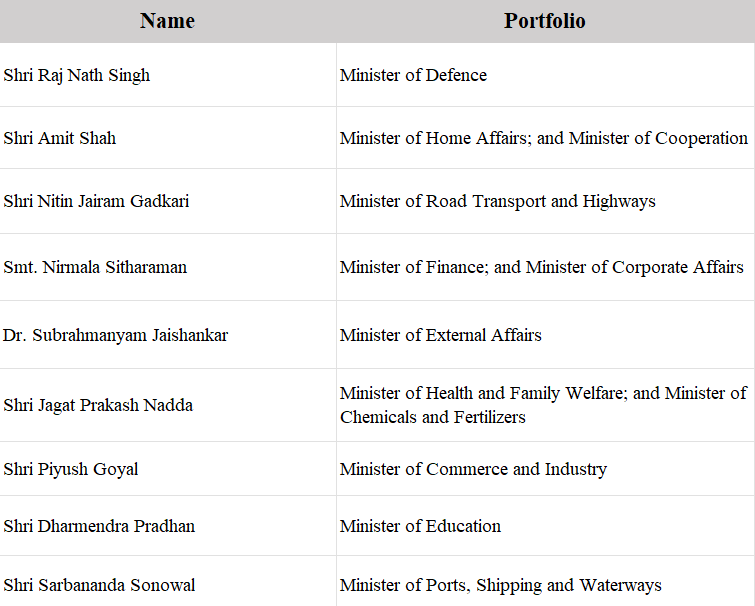
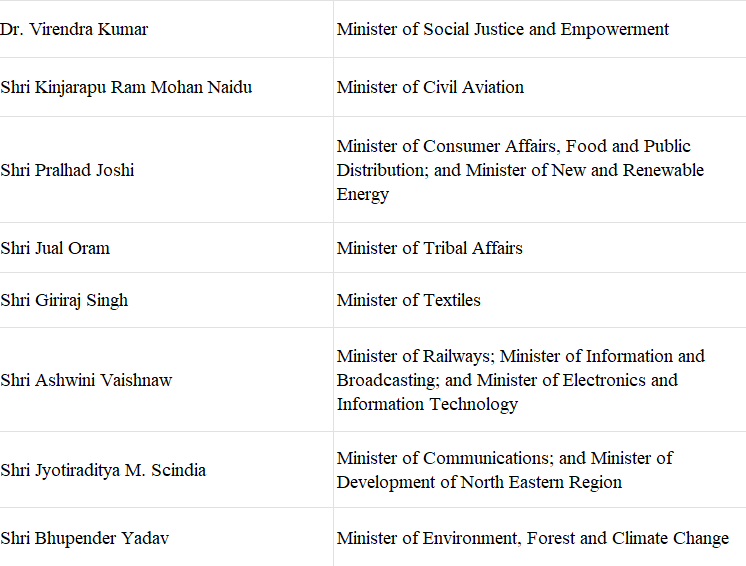
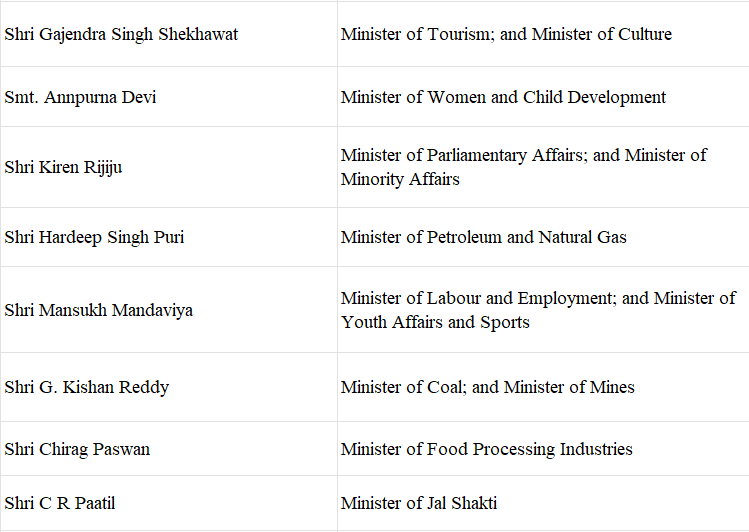
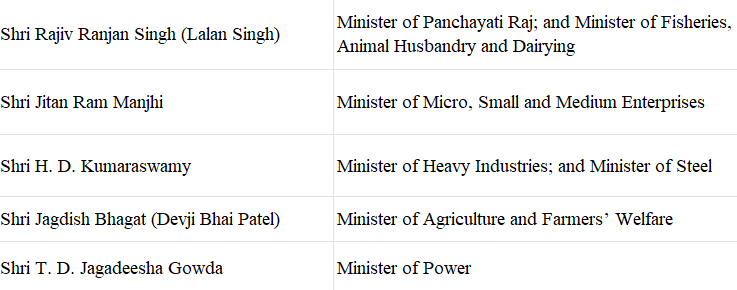
Did You Know?
- The Union Council of Ministers includes key figures who manage essential portfolios such as defense, foreign affairs, and education. The Cabinet plays a crucial role in shaping India’s national and international policies.
List of Minister of State (Independent Charge) 2025 along with their portfolios:
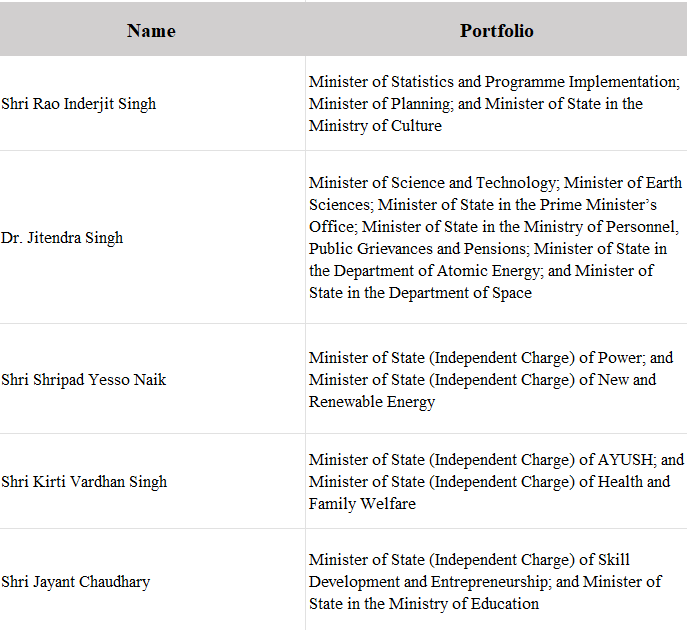
List of Ministers of State 2025 along with their portfolios:
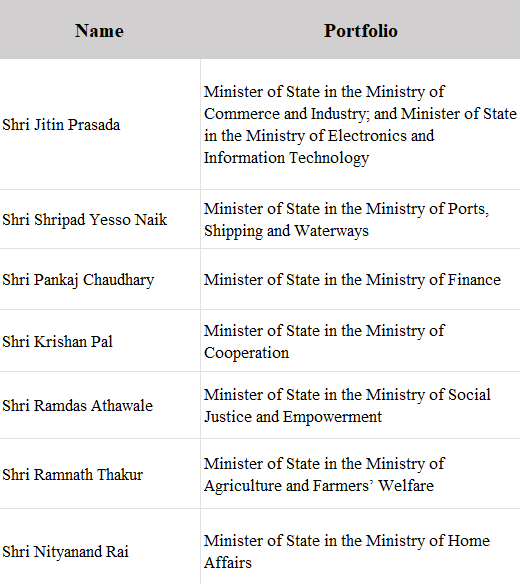
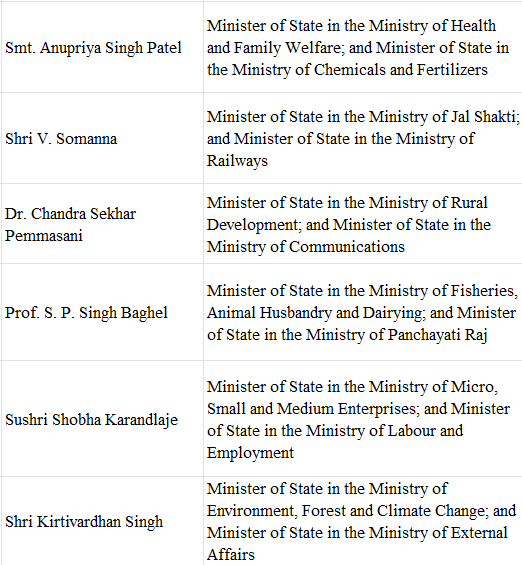
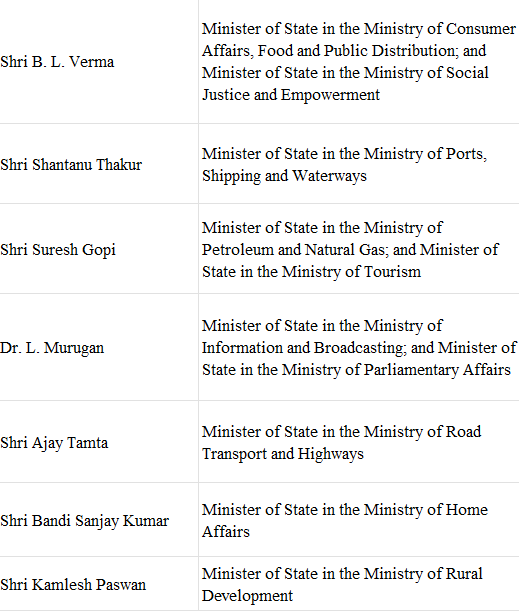
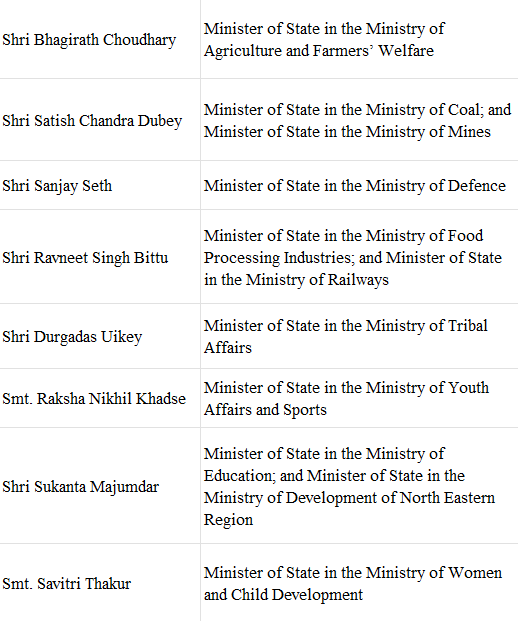
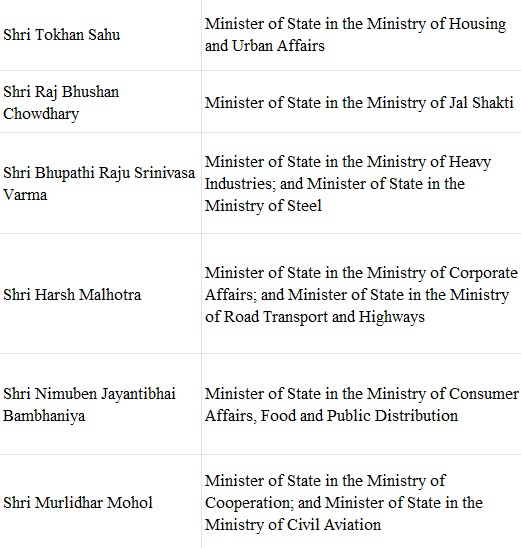
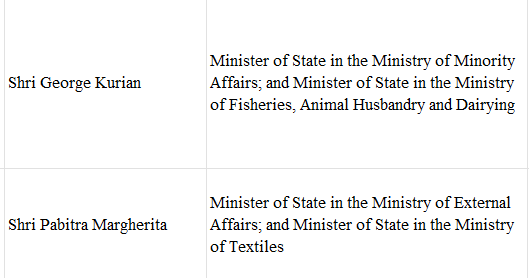
Conclusion
The Union Council of Ministers, with the Prime Minister at its helm, is responsible for managing the day-to-day functioning of the government and shaping the future course of the nation. Each minister, whether in the Cabinet, as a Minister of State (Independent Charge), or a Minister of State, has a critical role in ensuring the efficient implementation of policies. Together, they form the backbone of India's governance, ensuring the country’s growth, stability, and international standing.
|
164 videos|800 docs|1158 tests
|















